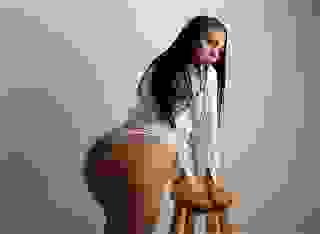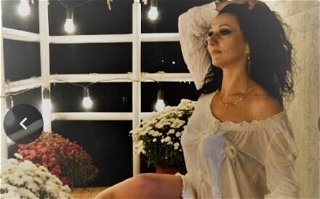- Loving Wives
- 1066
- Page 4
Note: You can change font size, font face, and turn on dark mode by clicking the "A" icon tab in the Story Info Box.
You can temporarily switch back to a Classic Literotica® experience during our ongoing public Beta testing. Please consider leaving feedback on issues you experience or suggest improvements.
Click hereI stepped into view, "Don't you recognize me priest. It is I, Aelfwine, houseman for our good thane Aidan."
The priest stepped further away. I saw him reach under his garment; perhaps he was reaching for a dagger.
I stepped closer, "What? You're not glad to see me?"
He recovered, "Aelfwine. I didn't recognize you. How is it you're here? Why aren't you at the hall with the others?"
He was a clever one this Seaton. I never trusted him; though he bathed regularly he always had the look of someone who was sweaty but not from work, "I'm here to make confession," I pointed toward the portal, "Shall we go inside?"
The priest's response was swift; there was an air of diffidence to his voice, "I'm here for the friar."
It was then the friar interjected, "Don't concern yourself; go ahead in, hear Aelfwine's confession."
I could see the priest was frightened. He knew he'd been lured here, and I think he knew why. He replied, "I think best we hear your confession in the town chapel."
"No," I responded, "I need to make confession here, now."
The priest made as if to turn and run. He was too slow. I'd held the club hidden under my garment. I pulled it out and smashed in his skull before he could take a second step. He collapsed to the ground-dead.
I looked to the friar, "Best get some earth. Cover the stains while I drag away the carcass."
The friar asked, "Will you be back?"
"No," was my reply, "did anyone know the priest was to be with you tonight?"
"None to worry over; Seaton's been an unseemly character of late. No one will grieve his disappearance."
I wanted to say more. I wanted him to pray for me. I was sure he knew my presence was destined only to bring added suffering. I only said, "Clear the blood, and stay indoors," with that said I lifted the priest's body over my shoulder and slipped into the forest. I was sure it would be at least a day before the priest's absence was noticed by the Normans. By then his earthly remains would be well on their way out to the sea.
++++++++++
When at the river I took a nice cold bath; it felt good. I watched as the corpse of the dead priest slowly drifted away.
In the past when we were at peace the wealthy, our thane and other nobles, occasioned to visit the old Roman baths at Colchester. I was permitted to use them once; they used to keep the water hot. I found the experience pleasurable. There was a folktale that said the baths at Colchester were haunted by an old Gaelic deity named Sulis. They say Sulis was the one who leveled curses on those most, or should I say least deserving. I suppose the Normans will be using them now. Maybe old Sulis will give them some special attention?
When the Norsemen came they built their own hot baths. They used wooden tubs and kept them heated with any number of devices. In many ways they're a gifted people. I have Norse blood.
The water in the river was frigid, but it still felt good. I saw more than just the priest's body drift down the river that night. These are troubled times. Afterward I sneaked back to the smith's.
Back at the forge Donnell had a lot to say. He told me that while I was with the friar Owen had been to the great house. There had been some talk about a new man in the village. Owen said not to be surprised if more than the normal number of men at arms were out and about the village the next few days. Owen also said he overheard the theft and sale of the cattle and other property was used to help pay the wages of this Geoffrey's soldiers. So not only were they stealing all the food to feed these men; they were stealing to pay them to kill us too. I didn't like it.
Long about midday I was fumbling about the shop pretending to work when four men at arms stopped by. They only looked in; they reminded Donnell he was to be at the great house for supper that evening, and he was to bring anyone who worked for him along.
Those men never came inside, but I got a glimpse of them. They were dirty; they didn't impress me at all. I thought back on the Norsemen we'd fought. What a difference! The Norsemen had been in the field several days. They'd pillaged several towns; it was they who should have been filthy, yet they looked clean compared to these Normans. Then I had another thought; the Norse had crossed the northern countryside. Of course they'd ravished the Northumbrian women; they'd stolen everything they could carry, that was what plundering was about! But I hadn't seen the wanton destruction of the working folks' homes, the brazen slaughter of the people's livestock that I'd seen with these Normans. Though I'd killed several, I could respect the Norsemen, but these Normans were a different sort, a far different sort.
That night I prepared to accompany Donnell to the hall. I dressed as one who had no esteem. I kept my leather cap on, and I wore a dirty woolen long shirt partly covered by a grimy leather apron. I made certain my sleeves were completely rolled down. I decided not to wash my hands, and kept my hair in untidy braids. I wanted to look as bedraggled and as unkempt as possible.
We reached the great hall along with about forty other people. These were mostly artisans, older farmers, and what remained of the laboring class. They brought their wives and the few children that hadn't been hidden in the forest.
While we'd worked the forge Donnell told me the decision to hide the children had been Godyfa's. She was afraid they'd take and sell the children. It may sound odd to some but there'd been sightings of strange galleys along the coast. Some said they were Moorish vessels. I've seen one or two Moors. They're a dark people, but clean. They have a stark look about them; long beaked noses, black eyes, but like I said I only saw the two and then for only a few minutes. We'd been in London at the time for the assignment of Harold as our king.
Then of course there were always Norse ships about, but fewer now I'd wager since the battle in the north. These sailors often came to buy or steal our women and children. It wasn't a serious concern, but it was always something that required due diligence. When Harold was king and Edward before him, these matters were well controlled, but now with the Normans conditions might not be so clear. My wife had taken good precaution. She was wise in many ways; if she'd only taken to the forest with the children...
When we got in the great hall I almost made what would have been a disastrous mistake. I'd been among our lord's favorites. For years Godyfa and I sat at the Lord's Table. Tonight my condition was completely reversed. Being among the lowest I was to be seated well below the salt.
Our now dead lord had adopted the more modern fashion employed on the mainland. He'd said it was important to keep up with the times. So across the front was the long table. This was the Lord's Table; it was there where the most prestigious sat. Sometimes seating was rearranged when important guests visited; then a few of the more privileged were forced to sit among the common folk. Not once, never, had I been told to sit at a lower table. I was always at my lord's table, often just to his right, the seat of highest respect.
Outward from the great table there extended five additional long tables. There was a good space between the end that was nearest the great table and these others. This space was set aside for entertainers, for presentations by traders, and sometimes the space was used by visiting delegates to stand and explain some political matter. I never had any interest in the political things, but often my lord required me to listen. I never understood why; I seldom knew what they were discussing.
These five tables that extended outward were for the common folk. The further down the table one sat the lower was one's status. Somewhere along each table was a bowl of salt. Those closest to the lord were 'above the salt'; they could sprinkle salt on their food freely without request. Those below the bowl had no such right. Tonight I'd be well below the salt; it would be humiliating.
As we entered Donnell and I separated; Donnell being the town's smith sat near the head of one the tables for the common people. I'd sit at the other extreme end. I made no noise. I brought no attention to myself as we all sat. I kept my head well down.
The custom was that the food was placed at the most prestigious end and then passed along. Each diner took a share. Me, being at the lowest end, would get what was left. When the food bowls finally reached me I found much more food than would be normally expected. I surreptitiously glanced up the table. I saw the looks in the peoples' eyes. I knew then, though I was at the end for the least, I was still very highly regarded. It was at that moment I realized the full weight of my responsibilities. All these people were tired, they were afraid, they were looking to me. It scared me. To them I was like the Jesus: I was to be their savior. I didn't know if I had the capacity. That Jesus must have been a strong man; maybe a man not necessarily strong in the physical sense, but certainly strong of character. I knew right then I needed to pray more. I also realized being a leader meant more than being good with a sword. I became afraid. I didn't know what of, but I knew I was afraid.
That's when I heard her. I heard my sweet wife, my Godyfa. She was at the great table; her voice had the same soft sweet lyrical sound of a bird when it sings. Though we were at some distance I felt as though I could smell her blessed fragrance. She often smelled as though she'd bathed in rosemary. Of course that was ridiculous. She used rosemary when she prepared our food at home. It was a herb she liked; it made the pork and lamb more flavorful. I guessed I'd become so accustomed to the aroma I associated the smell with Godyfa. I imagined if she had anything to do with this meal she'd seen to it that rosemary had been added.
I looked at the food bowl. There were rosemary leaves pressed against the bottom. Had she seen to it that they'd be there? Had my Godyfa made certain to place those precious leaves at the bottom of the bowl? Was this some signal? I smiled. I pretended to quietly laugh. I was being a fool. I didn't know it then, but had I looked up I would have seen her discreetly eying the far end of the table where I sat.
The throng sat and ate. Someone at our table had plopped a hunk of salt on the meat I was eating. We all sat in silence; there was a great difference between the almost deathly quality of this meal tonight and the raucous good cheer, the vibrant conviviality that had been commonplace just a few weeks before. These Normans were a morose lot; at least that's the impression I had. Perhaps when they were home in their own land they behaved differently.
I glanced at the plates of the people further up the table where I sat; most had far less food than I. Some had no food at all. They'd passed the bowl down without taking a fair portion and in some cases obviously, no portion at all. Their self-denial made me feel even more uncomfortable.
From the great table there surfaced a muttering; a muttering that slowly grew in depth. Even I, at the far end of the hall heard some of the grumblings. I think I heard some reference to something or someone at the far end, the low end of the hall. I realized they were talking about me.
At last I heard the gravelly voice of the man who had to be the new lord here. I heard this Geoffrey ask, "Who is that big fellow at the other end of the hall?"
Another growled, "He's no one sire. Some of our men visited the forge this morning. He's a handyman who works for the smith."
I heard the lord Geoffrey, "Where's the smith? What is his name?"
Yet another voice uttered, "The smith sits over there. His name is Donnell. He's of no account."
The lord Geoffrey ordered, "Have him brought before me."
A man at arms was sent to obtain Donnell. He walked toward Donnell's table, "You, over there. Yes you. Come here. Our lord wants to see you."
The slight murmuring that had attended dinner thus far had come to an end. I carefully, but surreptitiously watched as Donnell made his way to the open space between the common tables and the great one. He affected a limp which he really didn't have. I thought, 'What a clever actor.'
Donnell looked overmuch obsequious. I thought he overdid it, but the Normans didn't seem to notice. He took off his cap. Cap in hand he looked down to the floor, "Yes lord?"
Geoffrey asked, "Who is the man who helps you at the forge?"
Donnell responded, "No one lord, no one; just a stupid, witless oaf."
Geoffrey looked directly at me and pointed, "Is that the man?"
From the corner of my eye I saw my wife's face go white.
Donnell turned and pretended not to see well. He was bent over after the fashion of man who'd no strength in his back. He made as if the totter. It was laughable; Donnell was an older man, but he was certainly no doddering old fool. In fact he was probably twice the man as most of the men at arms I'd seen about. And his vision? Why he had the eye of an eagle.
Donnell looked at me as though his gaze was some kind of warning, "That's him, yes that's him there in the back."
My wife mustered her voice, "Why are we wasting our time with that stupid half-wit? Let someone play some music. I want to sing."
This Geoffrey scowled, "Quiet wench," I felt my hackles rise. No one ever dared call my wife wench. I kept my eyes on my plate.
Geoffrey turned to one of his knights. I didn't know it at the moment but he'd turned to Richard, 'Richard the Bloody', his Seneschal. He said, "Bring that oafish looking fellow up here... to me."
Richard stood up and aimed his gaze at a man at arms. Without a word the soldier passed down the table to me.
When he reached me he struck my arm with his gauntleted hand. My natural reaction was to stand up and smack the man down, but I couldn't do that. I looked up and acted flustered, "Me? What?"
The soldier pointed to the great table, "You; up there."
I slowly got up and did my best to pretend to shuffle to the table. My movements were greeted with a mixture of chuckling and laughter. The laughter came from the Normans at the great table; the chuckling from the common people. When I reached the open space I doffed my leather cap, and started scratching my head. This was a sure indication of lice.
Lice were a nuisance that occasionally emerged, especially in the colder weather when people spent more time indoors. Our village had gone through a serious infestation when I was a child. A backward, really awkward woman had accompanied a trader to Colchester where she contracted the vermin, and then brought them home. The dastardly things spread throughout the village like fire. It took weeks of scrubbing with an especially caustic soap, and a thorough cleaning, often a burning, of the affected cloths.
The woman had been the halfwit Ethelfledda. In fact, though quite old, she still lived in the village. Now a foolish dull-witted and outspoken crone, she'd been safely hidden away now that I was back. I don't know what they'd done with her. I'd overheard Donnell when he'd been discussing her with Owen. Some in the village wanted to strangle her. All I knew was that she wasn't around this night.
While I scratched my head and played the fool this Geoffrey was conferring with his Seneschal. At last the man, Richard the Bloody looked at me, "So oaf...you have a name?"
I kept my eyes on the floor. I shifted my weight from foot to foot. After what I thought was a pause appropriate for a dullard I looked up, but I didn't try to catch anyone's eye. I did however get a glimpse of my wife. She looked terrified. I finally replied, "I...uh...yes."
The knight laughed, others joined in. He spoke again, "Well...what is it?"
I shrugged, "Edgar my lord," I cast my eyes back to the floor. I heard a brief intake of breath from Godyfa. She knew Edgar was dead. She also knew the whereabouts of his woman Meghan.
Another knight, I think Henry, I believe he was the coward, heard her too. He turned to my Godyfa, "The name, is it his?"
I watched; my wife was no fool, "Yes it's his," she giggled, "I was just surprised he remembered it." She gave me the look of a silly little girl, as if to say I can play them for a fool too.
The Seneschal ignored the exchange. He looked at me. I could tell he was trying to make some sort of decision, "What is it that you do Edgar?"
I pretended to stutter, "... I... w... w... work at t... t... the f... forge. I carry t... the... w... weighty materials for my master t... the smith D... D...D... Donnell.... I heat t... the fire. I b... beat t... the metal with a hammer. I... I get to drop it on water I..."
The Seneschal had heard enough, "I hear you," he waved me off with a hand.
Then the last knight, Hugh of Dancy, I think that was the name I was told, he spoke, "You look well built, even for a smith you look well built," he turned to a man at arms, "Take off his shirt. I want to look at him."
A man at arms, a greasy looking one eyed man with a filthy patch covering the empty socket stepped forward. He looked particularly vicious. He stepped close, "Off with the shirt scum."
I stood mute; trying to look as stupid as I could. I kept up the pretense of stuttering, "Y... You want my... shirt?"
He replied, "No idiot; the lord wants to see your body."
I nodded as though I'd discovered one of the great mysteries of life, "Oh... my body," I dropped my hat to the floor, undid my apron, and pulled my long shirt over my head. In an attempt to hide I leaned down and reached for my cap. No one moved. I stood back up, still careful to lean forward after the manner of a man who'd spent long hours in uncomfortable positions. It didn't work.
Geoffrey exuded a half gasp. My wife's face was white as a cloud on a sunny day. I remembered she hadn't known I'd been wounded. The seneschal started to rise. Henry look frightened. It was Hugh who spoke, "This is no smith!"
It was my wife who recovered, "I see you're recovering from your stupidity."
I didn't know what she meant.
Godyfa pointed to the wound I'd received at the bridge, "See where the fool accidentally sliced himself open trying to sharpen a sword. He was the laughing stock for days after that. Many thought he'd die."
The lord Geoffrey leaned back and laughed. He grabbed my wife and started to pull on the strings that held her bodice in place. She leaned forward as if to make his chore easier. She smiled at him with her mouth, but her eyes pleaded with me as she did so. Godyfa laughed again. I could tell it was a false gesticulation. She spoke loudly, "He's a stupid clumsy fool. He works the forge because he's strong, but he's half witted, an idiot. Everyone likes him because he's a reminder there's always someone around who's stupider and less aware than they are."
Hugh laughed, "Like Henry here. Someone everybody likes because he's someone everybody can best."
This brought laughter from the seneschal and Geoffrey. Geoffrey leaned around at Henry, "How say you Henry of Dulac?"
Dulac grimaced, "I say we cut the fool open and see what he looks like inside."
I thought at that moment I'd have to fight, but Geoffrey had been taken in, "Don't be a churl in front of these people. You're a boor as it is. He looked at me, "You Edgar," I looked up, "Pull your shirt back on. Go back and sit down...and sharpen no more swords," then he laughed, it was a signal for the others to join in. My wife's laugh was almost hysterical. I thought if I could, I'd warn her to stop or she'd give us away. She must have sensed my mood for she quieted down.
I pulled my shirt back on and returned to my seat. As I reseated the farmer beside me whispered, "Well done lord," I coughed in response.








